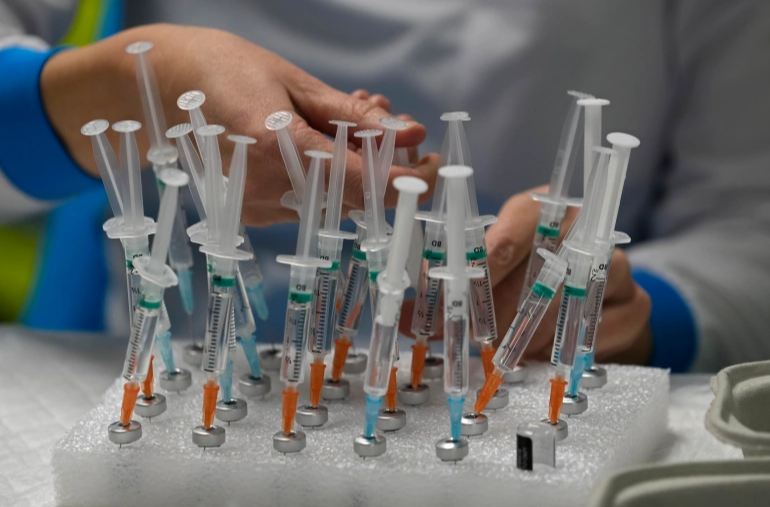
The discovery of Omicron triggered alarm that it could cause another surge in global infections [Paul White/AP Photo]
Geneva, December 15 (RHC)-- The World Health Organization has warned that the coronavirus variant Omicron was spreading at a rate not seen with previous strains and was likely present in most countries. The discovery of Omicron was first announced in November by scientists in South Africa, which was the first to experience a surge in COVID-19 driven by the new variant.
“Seventy-seven countries have now reported cases of Omicron, and the reality is that Omicron is probably in most countries, even if it hasn’t been detected yet,” WHO chief Tedros Adhanom told reporters during a media briefing in Geneva on Tuesday. “Omicron is spreading at a rate we have not seen with any previous variant.”
The WHO chief also lamented that some people were dismissing Omicron as a mild variant. “Surely, we have learned by now that we underestimate this virus at our peril. Even if Omicron does cause less severe disease, the sheer number of cases could once again overwhelm unprepared health systems.”
The discovery of Omicron triggered worries that it could cause another surge in global infections, leading many countries to impose travel restrictions on several southern African nations.
The WHO chief said the UN health agency supported giving COVID-19 vaccine boosters, as long as the distribution of shots was prioritised and fair. “Let me be very clear: WHO is not against boosters. We’re against inequity. Our main concern is to save lives, everywhere. It’s really quite simple: The priority in every country, and globally, must be to protect the least protected, not the most protected,” he said.
Tedros said the emergence of Omicron has prompted some countries to initiate their COVID-19 booster programmes for their entire adult populations despite lacking evidence for the effectiveness of boosters against the Omicron strain.
“WHO is concerned that such programs will repeat the COVID-19 vaccine hoarding we saw this year, and exacerbate inequity. It’s clear that as we move forward, boosters could play an important role, especially for those at highest risk of severe disease death.
He noted that 41 countries had still not been able to vaccinate 10 percent of their populations, and 98 countries have not reached 40 percent. Moreover, the WHO chief said there were significant inequities between population groups in the same country when it came to vaccinations. “If we end inequity, we end the pandemic. If we allow inequity to continue, we allow the pandemic to continue,” Tedros warned.

